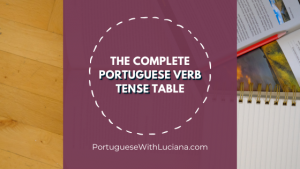As I wrote in part 2 of these series of articles about Grammatical Gender, this one will be about words ending in -ÃO! They are tricky because some are masculine and some are feminine. So here I’ll show you a way to *help* you separate them.
As I wrote, just to help you because there are some exceptions, too. First, I’ll put here an explanation that will be important for you to identify feminine and masculine words ending in -ÃO.
Concrete and abstract nouns
Concrete noun is something that can be touched, seen, heard (perceived with one of the five senses). When you think about a concrete noun, you have the image of a thing in your mind, something that belongs to the reality, like a table, a chair, the sound of a truck.
Abstract noun can’t be touched or seen, they are feelings, emotions, ideas. Some examples: love, peace, education. Now you’ll see why these definitions are important.
1. Masculine nouns ending in -ÃO
 In this part, we can add concrete nouns! Let’s use caminhão (truck, lorry) as an example. It’s something that can be touched, seen, heard, and even smelled! It’s a concrete noun and masculine in Portuguese.
In this part, we can add concrete nouns! Let’s use caminhão (truck, lorry) as an example. It’s something that can be touched, seen, heard, and even smelled! It’s a concrete noun and masculine in Portuguese.
Other concrete, masculine nouns are: o algodão, o avião, o balcão, o limão.
2. Feminine nouns ending in -ÃO
And here, as you guessed, we can add the abstract nouns! For example, the word emoção. This is not something you touch or see, but you feel it, it’s normally hard to describe, people may express different ideas about it. So it’s feminine!
Other examples: a compreensão, a inspiração, a satisfação, a razão.
3. Exceptions
This was too easy, right? Let’s add some exceptions (exceção – feminino) here:
O perdão (forgiveness), o padrão (pattern) – these are masculine
A mão (hand), a ração (pet food) – these are feminine.
As you see, there are exceptions, but you can use the rules in 1 and 2 to guide you when you are learning them and I’m sure you’ll get more right that wrong ones!
4. Revising all tips!
- Masculine words ending in
-AMA: o programa (de TV, do evento)
-EMA: o problema, o sistema
-IMA: o clima
-OMA: o idioma
-UMA: o trauma - Words like: o sofá, o maracujá, o Canadá, with accent over the last -à.
- And words like: o dia, o mapa, o tapa, o planeta, o profeta.
- Feminine words ending in -GEM like: a viagem, a passagem, a vantagem, a garagem
- Feminine words ending in -DADE: a saudade, a bondade, a maldade, a liberdade
- -ISTA ending used for male and female, like: o dentista – a dentista, o budista – a budista.
Numbers 1 and 2 in this post and the exceptions:
- Concrete nouns are masculine
- Abstract nouns are feminine
Here you have an activity to practice what you’ve learned in this article!
Hope you got all right and if you want more practice, click here!
Any questions about this subject, let me know in the comments!



